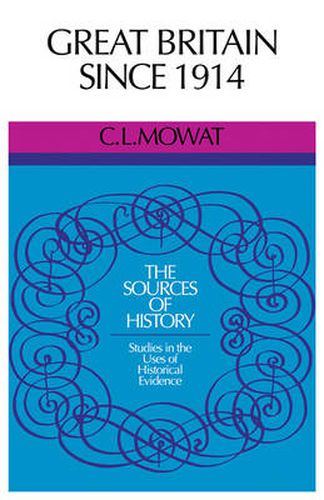Readings Newsletter
Become a Readings Member to make your shopping experience even easier.
Sign in or sign up for free!
You’re not far away from qualifying for FREE standard shipping within Australia
You’ve qualified for FREE standard shipping within Australia
The cart is loading…






Contemporary history poses its own particular and very difficult problems. On one hand, the materials are usually available in overwhelming quantity; on the other, a great many things that historians of earlier periods familiarly rely on remain secret for those concerned with very recent times. The actors in the story sometimes remain accessible, but while this has its advantages it also poses unusual problems of assessment and evaluation. Above all, the historian lacks the perspective, knowledge and preliminary sorting bestowed by the passage of time. In this book, a notable practitioner in this difficult field sets out to describe the types of sources available for the history of Great Britain since about the beginning of the First World War, and analyses the advantages and the difficulties involved in their use. For this period the student has to rely in particular on vast masses of official paper, the recollections of participants (in written or spoken form), and the accounts of contemporaries (especially in newspapers). None of these materials, nor the lesser sources of evidence, can be effectively used without instruction of which far too little is at present available. Professor Mowat brings his range of experience to bear on the problem providing it.
$9.00 standard shipping within Australia
FREE standard shipping within Australia for orders over $100.00
Express & International shipping calculated at checkout
Stock availability can be subject to change without notice. We recommend calling the shop or contacting our online team to check availability of low stock items. Please see our Shopping Online page for more details.
Contemporary history poses its own particular and very difficult problems. On one hand, the materials are usually available in overwhelming quantity; on the other, a great many things that historians of earlier periods familiarly rely on remain secret for those concerned with very recent times. The actors in the story sometimes remain accessible, but while this has its advantages it also poses unusual problems of assessment and evaluation. Above all, the historian lacks the perspective, knowledge and preliminary sorting bestowed by the passage of time. In this book, a notable practitioner in this difficult field sets out to describe the types of sources available for the history of Great Britain since about the beginning of the First World War, and analyses the advantages and the difficulties involved in their use. For this period the student has to rely in particular on vast masses of official paper, the recollections of participants (in written or spoken form), and the accounts of contemporaries (especially in newspapers). None of these materials, nor the lesser sources of evidence, can be effectively used without instruction of which far too little is at present available. Professor Mowat brings his range of experience to bear on the problem providing it.